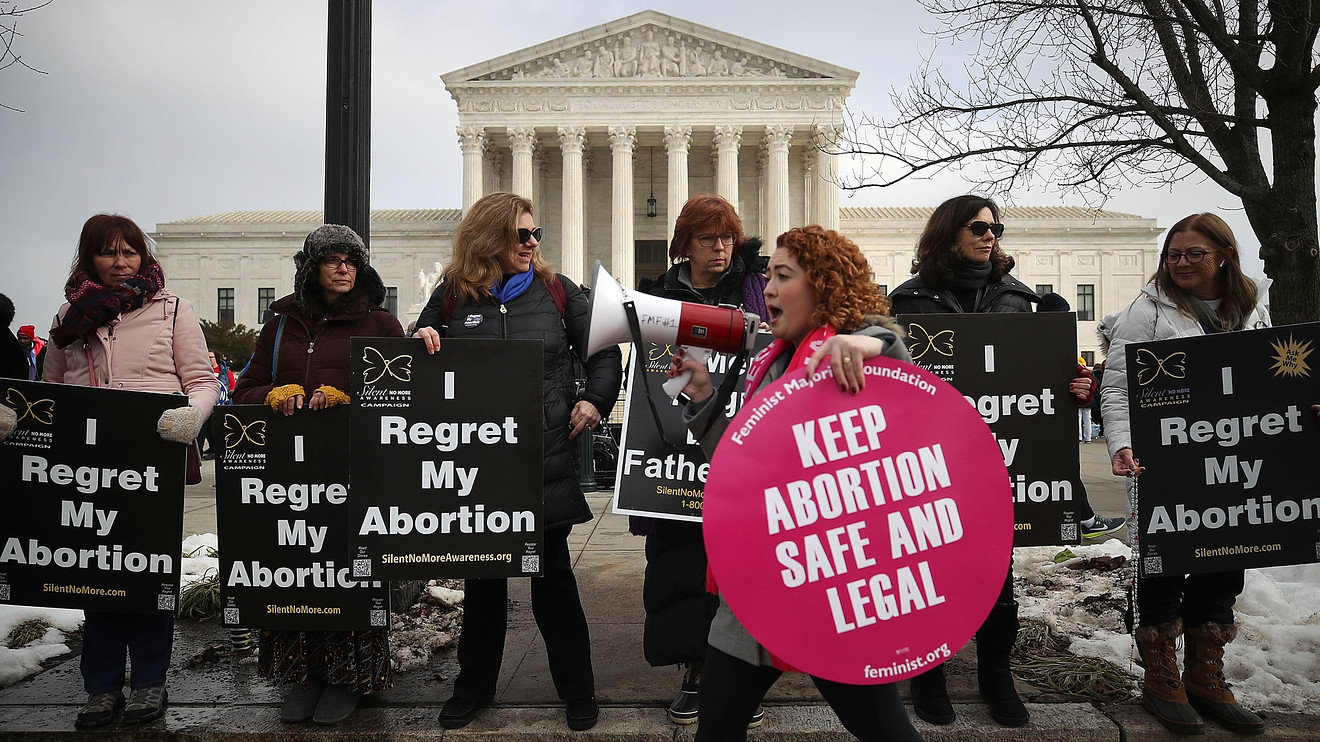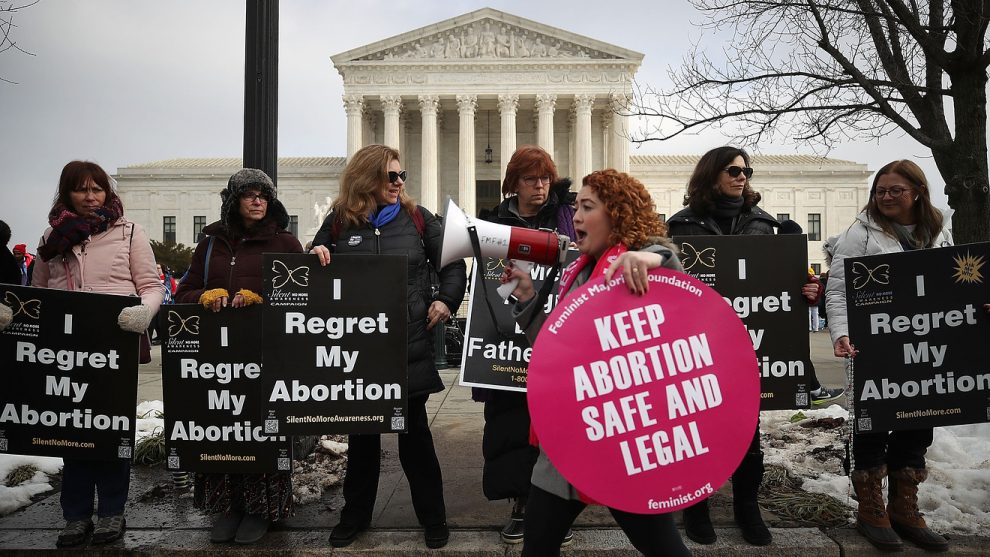
Most Americans want the landmark abortion ruling Roe vs. Wade to stay put — but they’re far from satisfied with the current state of abortion laws.
Some 77% of Americans want the U.S. Supreme Court to keep Roe v. Wade in place, according to an NPR/PBS News/Marist poll released Friday, while just 13% want it overturned and another 11% are unsure.
But support for upholding the 1973 decision isn’t that simple. Many folks still would like additional restrictions or policy changes. The 77% of Americans who broadly support Roe break down into various categories: 26% want SCOTUS to keep Roe v. Wade but add more restrictions, while 14% support keeping Roe but reducing some restrictions. Another 21% would want to see Roe expanded to secure abortion rights under any circumstance, and 16% want to keep it the way it is, according to the poll of 944 U.S. adults, 783 of whom were registered voters.
Abortion rights are shaping up to be a prominent issue for 2020 Democratic candidates. Former Vice President Joe Biden, for example, withdrew his longstanding support for the Hyde Amendment — which prohibits the use of most federal funds for abortions — after backlash from pro-choice activists and fellow candidates. Sen. Elizabeth Warren (D-Mass.) last month unveiled a legislative battle plan to pass federal laws protecting abortion and birth-control access.
About 12% of adults considered abortion to be the most important issue factoring into their 2020 presidential vote, according to the survey, behind health care, immigration and personal financial well-being. (The issue was registered Republicans’ second most important issue, but Democrats’ fifth most important.) Fifty-three percent say they definitely wouldn’t vote for a candidate who would appoint Supreme Court justices to limit or overturn Roe.
When asked which view aligned closest with their abortion-policy stance, 29% in the NPR poll said abortion should only be allowed in cases of rape or incest or to save the woman’s life, while 23% said it should only be allowed in the first three months of pregnancy. Only 25% said they were “very” or “somewhat” satisfied with the nation’s abortion policies.
With abortion laws working their way through several states, poll respondents also answered questions from May 31 to June 4 about their support for state-level abortion legislation: Six in 10 said they were more likely to support state abortion laws that decriminalized the procedure and made laws less strict, while only three in 10 were more likely to support laws that criminalized abortion and made laws more strict.
But when asked to give their opinions on specific law changes made in different states — without being told the state in which they were pending — participants’ responses carried more nuance.
More than half supported a law requiring insurance companies to cover the procedure. The vast majority (86%) supported a law allowing abortion at any time during pregnancy to protect the woman’s health or life, while 63% said the same about cases of rape or incest.
But 52% of adults also supported a law requiring that women be shown an ultrasound at least 24 hours before their procedure — a measure that’s not regarded medically necessary for first-trimester procedures, according to the Guttmacher Institute, a reproductive-health think tank, and “[appears] to be a veiled attempt to personify the fetus and dissuade a woman from obtaining an abortion.”
Some 65% supported a 24-hour waiting period between meeting with a health-care professional and having the procedure. In states that require in-person counseling typically 24 hours before an abortion, Guttmacher notes, the two-trip requirement “could constitute a hardship for some women.”
Meanwhile, 64% support laws requiring abortion providers to have hospital admitting privileges. Such legislation has led to the closure of abortion clinics.
Support was weaker for some of the more extreme measures. Just 24% were in favor of a law that imposed fines and/or prison time for doctors who performed abortions. (Alabama’s governor signed a bill last month to make performing abortions a felony in most cases.) And only 33% supported a law that only allowed abortions up to six to eight weeks, the point at which cardiac activity can be detected.
Americans’ support for abortion being legal takes a sharp tumble after the first trimester, Gallup polling has shown over the years. About 60% of adults in 2018 thought abortion should generally be legal during the first trimester, but that number plunged to 28% for the second trimester and 13% for the third trimester.
Nine out of 10 abortions are performed within the first 13 weeks of pregnancy, according to the Centers for Disease Control and Prevention.












